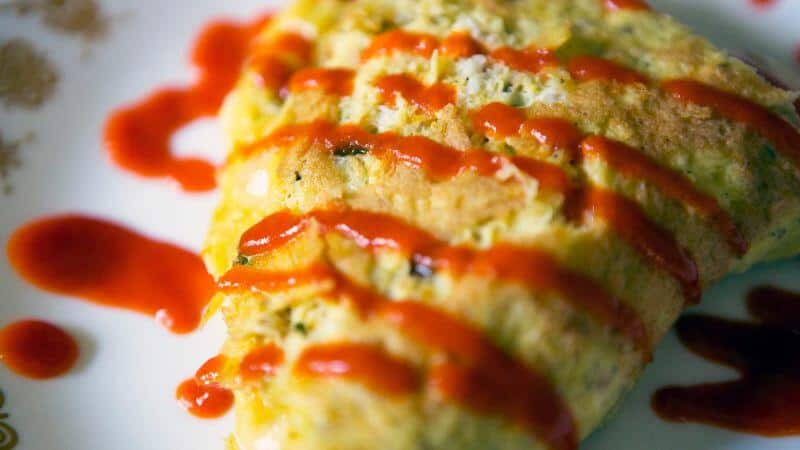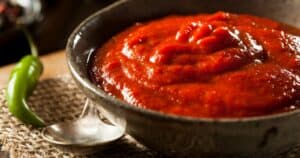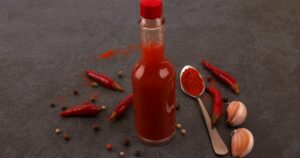Proper dining etiquette can be confusing whether you’re going to a meal with friends or a fancy business dinner. Many people face one common problem: knowing whether it’s rude to add something like hot sauce to your food.
It is considered rude to put hot sauce on your food without tasting it. If you taste the food and find it bland, it may be okay to add extra hot sauce. However, adding hot sauce without tasting the meal indicates that you expected the food to taste bland, which can be insulting to the host.
In the rest of this article, I’ll explain why it can be rude to add hot sauce (or any other seasoning) to your food. Read on to learn more!
Why It’s Considered Rude To Put Hot Sauce on Food
Technically, the issue isn’t with the hot sauce itself or other condiments or seasoning you add to the food. The problem arises from the perceived insult towards the host or whoever has cooked the food.
By adding something to the food even before tasting it, you send a message to the host that you expected the food to be bland or tasteless or that you have no faith in their culinary ability. This message might have been entirely unintentional on your part. It could be that you just really like hot sauce. Still, if the host doesn’t know that, it might come across as an insult to the food they made.
Generally, the rule is to taste your food first before adding anything to it. Once you’ve tasted it and determined that it isn’t to your taste, it’s considered alright to add to the food.
Important Considerations Before Adding Seasoning to Food
If your host has not provided condiments and seasoning on the table for guests to use, it’s extremely rude to pull out your own hot sauce and add it to the food. If the host has not provided anything to add, the best thing to do is simply smile and bear it. Eat enough that you’re not accused of rejecting the food, and maybe you can have a more substantial meal later.
A good rule of thumb is to ask yourself two questions before adding anything to your food:
- Has the host deliberately provided condiments or seasoning for guests to use at the table?
- Does the dinner host know me well enough to understand that I mean no disrespect to them if I add something to my food?
If the answers to those questions are ‘yes,’ you can add hot sauce to your heart’s content!
Social and Cultural Differences
Although the rule mentioned above applies in most situations, there may be times when it doesn’t.
For example, in formal situations like a wedding, dinner at an expensive restaurant, or a business dinner, it is considered rude to season your food before tasting it. However, if you’re having lunch with some friends who know your eating habits, it may not be rude. You may bend the rule on informal, friendly occasions.
It also depends on the host’s culture. In some cultures, the food is already heavily spiced during preparation, so there may be no need for additional hot sauce. In that case, it would be rude to add more because it would ruin the natural flavor of the dish. However, other cultures may deliberately under-spice food and provide condiments and seasoning for the guests to season their food as they wish.
When Is It Okay To Add Hot Sauce to Food?
On informal occasions or when meeting with friends, it’s okay to add hot sauce or other seasonings as you please. You can also add hot sauce if it has been provided by the hosts. Essentially, if you’re certain that it won’t be perceived as an insult, you can add hot sauce to your food.
As mentioned earlier, adding hot sauce (or any other condiments or seasoning) to food is not rude in and of itself. When someone else prepares food for you and you add something to it, it’s often perceived as an insult to their cooking ability. So the insult doesn’t come from the hot sauce itself; it comes from the implication that you don’t trust their cooking.
If you can add hot sauce to your food without insulting your hosts, then the issue is taken care of. Keeping that in mind, I’ve mentioned a few situations in which it would not be considered rude to add hot sauce to your food.
When You Know The Host Well
If the host of the meal is a close friend or family member, then it might be okay to add hot sauce to the food they serve you. However, this depends on a few factors:
- Whether they know you well enough to not be insulted.
- The host’s culture and cuisine.
As mentioned earlier in this article, it is extremely important to first taste the food before adding anything to it. Even on informal occasions or with close family and friends, it can still be considered an insult to add to your food before tasting it.
When the Host Provides Condiments
On any occasion, if the host has not provided condiments, it can be considered very rude to ask for more. It is especially rude to carry your own condiments and use them at someone else’s hosted meal.
Depending on the culture and social occasion, some hosts may provide condiments and encourage guests to use them. In this case, it is perfectly acceptable to add hot sauce to your food. If condiments are not provided, the most polite thing to do is simply eat the food without complaint so that you don’t offend your hosts.
Conclusion
Although it might change on different occasions, the general assumption is that adding hot sauce or any other condiment to your food is insulting to the host.
If the host has provided seasoning and condiments, knows your eating habits, and does not mind, you can add hot sauce. However, if that’s not the case, it’s best to leave it out and follow basic dining etiquette.
Sources
- The Independent: Top Chefs Reveal The Worst Things Diners Do In Restaurants
- Kent State University: Dining Etiquette
- Google Books: A Butler’s Guide to Table Manners by Nicholas Clayton
- Washington State University: Dinner is Served – An Etiquette Guide
- Tasting Table: Asking for a Friend: Is It Offensive to Season Your Food Before Tasting It?





